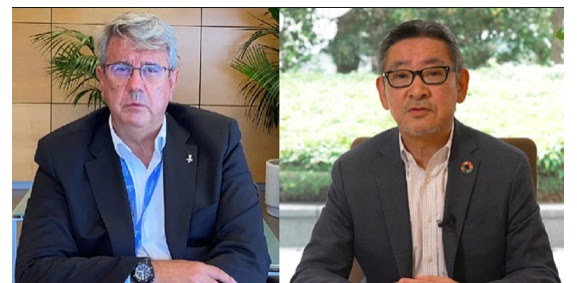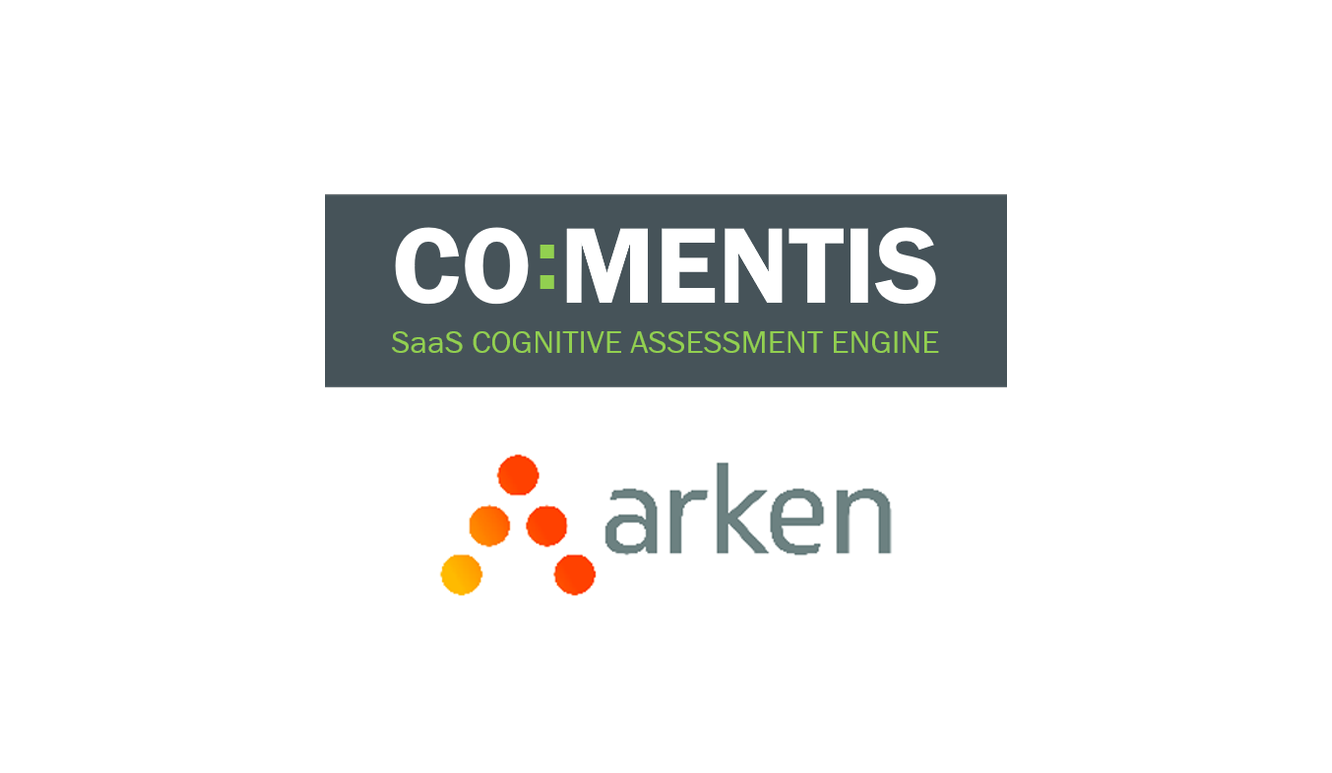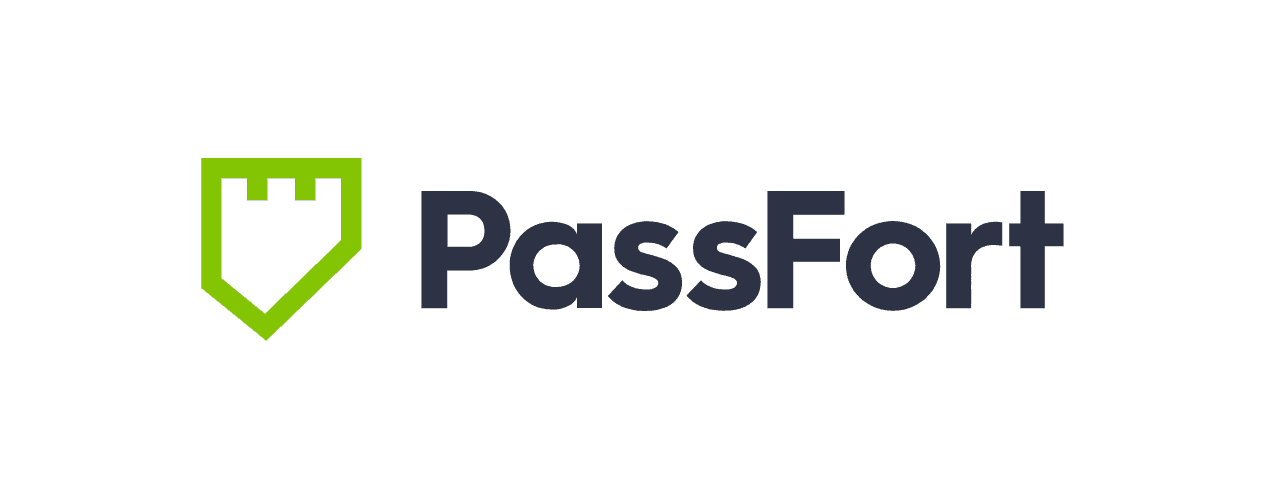Published
- 04:00 am

Small business loan approval percentages at big banks ($10 billion+ in assets) jumped from 13.8% in July 2021 to 13.9% in August, up by three-tenths of a percentage from one year ago. Meanwhile, small banks’ approvals also rose from 19.1% in July to 19.3% in August, according to the latest Biz2Credit Small Business Lending Index™ released today. The approval percentage at small banks is up eight-tenths of a percent from last year.
“Small businesses are again borrowing to improve their cash flow and for growth,” said Biz2Credit CEO Rohit Arora, one of the nation’s leading experts in small business finance. “Approval percentages rose at both big banks and small banks.”
Total nonfarm payroll employment rose by 235,000 in August, and the unemployment rate declined by 0.2 percentage point to 5.2 percent, the Bureau of Labor Statistics reported on Friday, Sept. 3. Notable job gains occurred in leisure and hospitality, and in professional and business services, transportation and warehousing, private education, and manufacturing. Many of these jobs are created by small businesses.
Non-Bank Lenders’ Approval Percentages Rise
Institutional lenders approved to 24.3% in August, up from 23.9% of funding requests in July and up 2.2 percentage points from one year ago. Meanwhile, alternative lenders approved rose almost a percent from 24.7% in July to 25.2% of funding applications in August 2021. Last year, the August percentage for alternative lenders was 23.0%. Credit unions approved 20.5% in August, the same percentage as the two previous months, but down from 21.1% in August 2020.
“Non-banks lenders continue to be a good source of capital for small business owners,” Arora said. “They typically focus less on FICO scores and more on the financial health of the borrowers who are applying for funding. This is especially true for institutional lenders and alternative lenders.”
Biz2Credit analyzed loan requests from companies in business more than two years with credit scores above 680. The results are based on primary data submitted by more than 1,000 small business owners who applied for funding on Biz2Credit's platform.
Related News
- 02:00 am

Indian tech solutions firm, Websites.co.in, has expanded its footprint in Africa through its partnership with Flutterwave, Africa’s leading payments technology, to help small and medium-scale businesses in Africa build their websites for free.
Through this partnership, users would be able to create and design their own website using the Instant Website Builder: Websites.co.in app, which is available on Google Play Store or via the website.
“The website creation process takes less than five minutes and it's so easy anyone can do it themselves. The business owner does not need any technical knowledge,” the company’s founder, Kartik Raichura, said.
He noted that the Covid-19 pandemic opened everyone’s eyes to a new internet dependent world. From education to emergency escalations, everything is happening online. “The Internet is an indispensable part of our lives and businesses that are not technology enabled will struggle to exist as their online counterparts are constantly developing and prospering.” Raichura reflected on the inspiration behind the SME empowerment.
The platform which has over a million users, is available in over 190 countries and in 98 languages, with the mission to support businesses globally. A unique offering of the platform is the flexibility and simplicity with which users can further manage or update their websites.
After a one-month free trial for users, those who wish to maintain their business website can select an affordable subscription option that suits their budget. As part of its Africa expansion strategy, Websites.co.in partnered with Flutterwave to make the payment process seamless and easy. Users all over Africa will be able to easily integrate Flutterwave’s payment gateway services to process e-Commerce through their website and accept local payment methods of their choice.
Commenting on the deal, Ifeoluwa Orioke, Chief Commercial Officer of Flutterwave, said: “Our mission is to simplify payments for businesses in Africa and worldwide. Through our collaboration with Websites.co.in, we are able to create opportunities for expansion and growth for these businesses, helping them with the digital transition to support their long-term growth.”
Further commenting on the partnership, co-Founder and Chief Technical Officer, Websites.co.in, Dhaval Mehta, said: “Our users will only have to focus on uploading great content on their websites, while we manage all the underlying complexities. We see that the technical jargons like SSL, hosting, etc. often scare the business owners. Hence, we have endeavoured to keep Websites.co.in as simple as posting an update on Facebook. If you know how to download apps like WhatsApp, Facebook and use them then you are good to get started with us instantly!”
The platform has also announced a discount rate to all its premium users which would allow users to pay a monthly token for a five-year window.
Related News
- 03:00 am

Over the past year public interest in cryptocurrency has grown exponentially. Headlines have been made by high profile investors like Microstrategy’s Michael Saylor buying bitcoin as well as the introduction of over $100bn dollars into the DeFi sector in just Q4 of 2020 alone. Yet these markets are not for the faint hearted as over the past year they have whipsawed, reaching new highs then falling precipitately, like they just did on September 7th. Professional investors committing to volatile investment like cryptocurrency will characteristically employ risk management software to limit exposure to big drops in account value. But up until now this kind of software has been available solely to the professional and the wealthy investor.
Panxora, a group of companies that specialize in cryptocurrency investments and investment services has released cloud risk management software that can be licensed by consumers investing in the cryptocurrency markets. Panxora’s Risk Management as a Service (RMaaS) links directly into an investor’s cryptocurrency exchange account. The software monitors the account’s digital asset holdings for increased volatility which can indicate the market is going to drop in value. It will then move account value from that asset into the safety of fiat currency waiting for the market to stabilize. When the market returns to a less volatile state the models will move value back into cryptocurrency, frequently at a much lower price. The benefit of this strategy is that by avoiding big losses the account returns to profitability far in advance of the market outperforming buy and hold. The user can track this on the RMaaS dashboard.
“We believe that cryptocurrency is at the start of a multi-year secular bull market,” stated group head and risk management specialist Gavin Smith. “That doesn’t mean that there isn’t still significant volatility in the markets. This means that RMaaS’s delivery of superior risk adjusted returns can be of real benefit to any cryptocurrency HODLer, regardless of the size of their investment.”
Marcie Terman, Panxora’s COO states, “We have developed a self-administered, easy to use dashboard that makes the service accessible to the general public. Traditionally it is only sophisticated investors that benefit from the rapid growth in new markets – cryptocurrency is breaking that model providing a more equitable spread of wealth amongst followers that have joined the movement early.”
It is not just bitcoin or ether that can be effectively risk managed by RMaaS. Over the next few months we will be regularly releasing coverage for new coins which are effectively risk managed by RMaaS.
Related News
- 08:00 am

Mphasis, (BSE: 526299; NSE: MPHASIS), an Information Technology (IT) solutions provider specialising in cloud and cognitive services, has expanded its footprint in Germany with the launch of a new delivery centre located at Hansaallee 299 in Dusseldorf, to support its growing presence in Europe. Mphasis aims to:
- Create approximately 140 new local jobs immediately, rising to 200 by June 2022 – aims to grow employment opportunities to drive significant growth in the market
- The centre will act as a pivot and anchor for the market entry strategy and business development
- Offer scalable operations and digital technology services to the DACH markets, which continue to be a hotbed of innovation, especially in financial services, automotive and logistics
- Provide innovative customer experience led contact centre services, piloting with an anchor client – a leading global fintech headquartered in Europe and specialising in payments – before scaling into automotive and other industries
“The establishment of Mphasis underlines the role of North Rhine-Westphalia as one of the most innovative business locations worldwide and as a strong location for Indian direct investments in the ICT sector. The local ICT sector is one of the drivers for the digitalization and transformation of our economy. Therefore, I am very pleased that Mphasis, one of India's Top 10 IT companies, has chosen North Rhine-Westphalia as a strategic hub for the further development of the European market. A clear sign of the growth potential in our state is the creation of over 140 jobs already in the first step," said Prof. Dr. Andreas Pinkwart, Minister of Economic Affairs and Digitalization of the State of North Rhine-Westphalia.
“The success is visible!” said Dr. Stephan Keller, Mayor of Düsseldorf. “The launch of Mphasis’ new delivery center proves that Düsseldorf is the perfect location for bringing innovative IT services to the German and European market. Nowhere else can Indian IT companies reach a greater customer potential and a richer talent pool than in the Düsseldorf region. The Office of Economic Development of the state capital of Düsseldorf offers - in close cooperation with our partners: NRW.Global Business, the Indo-German Chamber of Commerce, and the Chamber of Industry and Commerce of Düsseldorf - a first-class-service for new market participants. This enables Indian companies to quickly and successfully establish their business models in Düsseldorf."
Mphasis’ approach to transformation is aligned with the customer experience and compliance needs of the German market, where the crisis caused by the pandemic has accelerated the pressing need for agile, seamless digital experiences across sectors. Overcoming this challenge requires a deeply personalised approach to help organisations maintain competitive advantage. By launching a regional contact centre in Germany, Mphasis will drive high quality, efficient, scalable, and dependable delivery to cater to the unique needs of the evolving German and wider European market.
“As the global crisis has accelerated the need for next-gen operations and technology, we identified the vital need, and importance of native onshore and nearshore delivery centres to strengthen further our global delivery models for efficient and resilient delivery of customer-centric solutions. We’re excited to announce the launch of this new centre, reflecting Mphasis’ drive to form strong roots in the European market where we see considerable potential and where we are looking to create employment for hundreds of local people over the next 12-18 months,” said Nitin Rakesh, Chief Executive Officer and Executive Director, Mphasis.
“This is a further major milestone in Mphasis’ ongoing commitment to our core European markets. We believe that there is an opportunity to deliver better customer experiences by leveraging the unique characteristics and talent available in local markets and becoming more closely involved for the long-term with regional clients, employees, and society. Further, this move will help Mphasis to build greater resilience and compliance capabilities in its global delivery model. Our new center in Dusseldorf will be an ideal melting pot of talent, delivery, and customer experience,” said Anurag Bhatia, Senior Vice President and Head of Europe, Mphasis.
As a leader in next-generation digital solutions, Mphasis recognises the significant opportunities in the region. The Global Innovation Index (GII) ranks Germany in 9th in 2020 out of 131 economies, largely due to its position as one of the leading countries for patents and R&D spending, home to several world-renowned science and technology clusters, and regional bases of numerous multinational companies.
Mphasis also plans to establish partnerships with universities in the region to promote innovation, drive new concepts and ideas, and create internship or employment opportunities. In the immediate term, the company has opened applications for local customer experience and contact center specialists, further expanding to include other key digital skillsets.
Related News
- 08:00 am

Telefonica and NEC Corporation (NEC; TSE: 6701) announced today that they have entered an agreement to conduct Open Radio Access Network (Open RAN) pre-commercial trials in Telefonica's four core global markets: Spain, Germany, the UK and Brazil.
Telefonica is an early adopter of open networks and one of the major European operators that signed the Open RAN MoU in January this year, committing to the implementation and deployment of Open RAN solutions aimed at building more flexible, efficient and secure mobile networks in the 5G era. The company has a target of reaching 50% radio network growth based on Open RAN by 2025.
Following the successful milestones achieved through the trials in Telefonica Germany and the UK, under this agreement, NEC will serve as the prime system integrator to implement and conduct trials of multi-vendor-based Open RAN solutions with the Telefonica group's operating companies in four global markets, planned to scale to a total of at least 800 sites for commercial use starting in 2022.
The Open RAN solutions are comprised of an ecosystem of NEC's own products as well as software and hardware products of trusted industry leading partners. NEC's open 5G massive MIMO (mMIMO) radio units (RU) with advanced beamforming that significantly helps to increase/optimize network capacity will be a part of the ecosystem.
Furthermore, Telefonica and NEC will collaborate in validating and implementing cutting-edge Open RAN technologies and various use cases at the newly established Telefonica Technology and Automation Lab in Madrid. The use cases include those built on AI-driven Radio Intelligent Controllers (RIC) for RAN optimization, service lifecycle automation based on Service Management and Orchestration (SMO), testing and deployment automation in accordance with Telefonica's Continuous Integration/ Continuous Deployment (CI/CD) framework, as well as power savings optimization.
NEC's Global Open RAN Center of Excellence (CoE) in the UK will lead the integration and validation of the multi-vendor ecosystem and the joint development of innovative use cases with Telefonica leveraging its accumulated expertise.
"Open networks are undeniably the key to driving network evolution in the 5G era and to sustaining and fulfilling our mission of consistently delivering superior experiences to our consumer and enterprise customers," said Enrique Blanco, Chief Technology & Information Officer (CTIO) at Telefonica. "Through our long term engagement with NEC, we have firsthand knowledge of their technological and practical competence as well as their constant customer-first approach, and we are confident they are the right partners for this highly strategic initiative."
"We are extremely honored to be selected as the strategic partner for Telefonica's game-changing initiative that promises tremendous value and innovation in the long run," said Shigeru Okuya, Senior Vice President, NEC Corporation. "NEC and our subsidiary Netcracker's accumulated expertise among IT and networks is a valuable asset to help keep operators ahead of the curve in co-creating and redesigning the next generation mobile networks required in the 5G era and beyond."
Related News
- 02:00 am

Arken.legal, the UK’s leading provider of expert digital solutions for the private client and estate planning industry, has today announced its partnership with Comentis, a new technology provider that helps legal professionals identify reduced mental capacity.
Comentis’ unique software – the Cognitive Assessment Engine (CAE) – combines the latest technological advances with clinical expertise from a renowned team of mental health and psychology specialists led by Tim Farmer, to provide objective and consistent mental capacity assessments to legal services firms. The CAE is the first product in the legal market to combine digital and clinical expertise to produce an accessible and cost-effective platform, and will ensure Arken’s users don’t miss the critical signs of reduced mental capacity in clients.
Comentis’ mental capacity assessment engine will be incorporated into Arken’s existing will-writing software to facilitate the assessment process for legal professionals working with private clients. The exclusive integration is only available to Arken.legal customers, enabling them to provide their clients, and the beneficiaries of their will with an objective, dignified mental assessment, and peace of mind for all involved that the will and the related legal implications have been appropriately communicated and understood. Fundamentally, it mitigates the risk of a situation where vulnerabilities go unseen.
In recent years, the need for enhanced due diligence for legal professionals when assessing at-risk individuals has been highlighted. When assessing testamentary capacity during the will writing process, legal practitioners refer to the criteria outlined in Banks V Goodfellow (1870). However, capacity is nuanced, and it’s important each assessment considers an individual’s unique circumstances whilst maintaining consistency. Legal professionals will also need to submit evidence that due diligence and process was followed if they are ever challenged at a later date, and Comentis’ audit trail enables them to do this.
Jonathan Barrett, Co-Founder & CEO of Comentis, comments:
“This partnership represents a landmark moment for the legal sector, and we’re really pleased to be partnering with Arken to support legal practitioners in their work with private clients. It has been clear that assessments of mental capacity have been a challenge for the sector. However, progress is being made and technology can improve the process, particularly post-pandemic, when many assessments are being conducted virtually.
“Comentis’ new Cognitive Assessment Engine will make life easier for legal professionals providing them with a more robust and immediate process for assessing testamentary capacity that helps to protect them from future litigation.”
Tim Farmer, Co-Founder & Clinical Director of Comentis, said:
“I am a firm believer that upholding and protecting the rights of the individual should always be at the centre of mental capacity assessment. This integration between Comentis and Arken.legal is a fine example of how technology can ensure this is achieved – ensuring the dignity of the person being checked is never compromised and that the checks are being performed consistently, in line with pre-agreed standards.”
Dave Newick, CEO at Arken.legal, comments:
“At Arken.legal we are wholly committed to understanding how technology can improve the bereavement landscape and all of the processes that come with estate planning. Assessing reduced mental capacity has always been a challenge for the legal services sector, and estate planners and will writers have to ensure that customers are capable of making major life decisions with no other elements at play. Despite being thorough, this is an additional labour on top of an already unyielding workload, and without uniformity across the sector or a clinical understanding of how to identify these individuals, it can be a difficult task. However, Comentis’ Cognitive Assessment Engine will ensure that these challenges are a thing of the past and combining the tech capabilities of both our brands will improve the risk assessment process for legal firms.”
Related News
- 02:00 am

PassFort, the SaaS RegTech provider whose platform automates financial crime and compliance processes, today announced the close of its Series A funding, which gives the firm access to 16.2 million USD. The money will be used to realise PassFort’s global growth plans and its ambition to be the category leader in compliance automation for regulated businesses.
The $16.2 million Series A was led by the US growth equity fund, Level Equity, with participation from PassFort’s existing investors OpenOcean, Episode 1 and Entrepreneur First. $4.89 million worth of venture debt was also provided by Shard Credit Partners – with PassFort being the first investment from its newly launched UK tech-focused venture debt strategy.
The investment teams behind Level Equity and Shard Credit Partners have significant experience and a high level of confidence investing in the RegTech category PassFort now leads and are further boosting the company’s global ambitions.
The funding round follows major customer wins for PassFort, including Curve and WorldRemit, and recent senior hires in its sales and marketing functions. The company is now set for a scaleup in the implementation of its RegTech solution worldwide.
“We are excited to have secured this substantial new funding so quickly.” Said Donald Gillies, PassFort’s CEO and Co-Founder. “PassFort is currently capitalising on significant growth across the digital economy and the need for our automated compliance solutions, designed to make access to our customers’ products compliant and crime-free.”
Donald added: “It is a testament to the efforts of our team and company culture to have come through the last 12 months in a position where our products and our customer base are growing so rapidly. This helped generate the high investor demand to partner with PassFort on this next phase of growth.”
“Over the last few years, financial institutions and organisations have experienced exponential growth in business volumes and data, which has only increased the complexity in staying compliant with ever-evolving regulatory laws. In parallel, we’ve experienced an unprecedented rise in sophisticated financial crime activity as channels into financial systems have been digitized. This has underscored the importance of compliance matters such as AML/KYC, yet companies often have to weigh the trade-offs between speed, compliance and automation. PassFort has solved this challenge by providing a next-generation RegTech software solution that enables customers to offer a seamless customer onboarding experience, maintain best-in-class monitoring capabilities, and balance automation vs. human touch via its intelligent orchestration engine,” said Charles Chen, Partner at Level Equity, who will join PassFort’s board of directors. “We are thrilled to partner with the industry thought leader in this space and look forward to supporting the company’s future growth initiatives.”
William Chappel, Head of Venture Debt at Shard Credit Partners, said “We are delighted to have been able to provide financing support to PassFort and are extremely pleased to announce this as the first deal of the new Shard Credit Partners tech-focused venture debt strategy. PassFort is a name that I have followed for many years, and Donald and his team continue to build a dynamic and exciting offering. We are looking forward to working closely with PassFort as they continue to achieve strong growth milestones”.
Related News
- 06:00 am

New investment will enable ad-tech firm to ‘scale up’ and meet demand for cookieless solutions post-GDPR
· Illuma set to expand its team, products, and base of blue-chip company clients
· Blackfinch Ventures reinforces its commitment to investing in innovative tech companies
London-based llluma Technology, a contextual advertising company which uses AI to expand online campaigns by reacting to live browsing behaviour, has secured a £1.1m Series A investment from Blackfinch Ventures.
Founded in 2016 by leading data scientists and media experts, Illuma’s GDPR- compliant platform offers an alternative to cookie-based targeting which results in a better return on investment for advertisers.
Unlike other contextual ad-tech, Illuma works reactively in real-time, expanding campaigns to seek relevant new audiences based on the contexts that are proving most effective for each brand. It does this without relying on cookies, personal data or pre-built contextual segments.
The business was introduced to Blackfinch after it was chosen for capital fundraising through PwC's Raise programme.
The investment funds will allow Illuma to further scale-up its operations, including building on its pipeline of prospective clients, expanding its team, developing new products and further enhancing its proprietary technology.
Illuma’s expansion comes in response to growing demand from new and existing customers – including global brands such as Microsoft, American Express, Aviva and TUI - ahead of Google’s plans to remove cookies from its Chrome internet browser in 2023.
Commenting on the investment and the company’s growth plans, Illuma co-founder Peter Mason, said: “We are delighted to be partnering with Blackfinch, who share our vision of advancing sustainable and ethical business solutions.
“This investment comes at an exciting time for Illuma as the advertising industry considers partnerships for the cookieless future, and it will enable us to further evolve our algorithms, grow our team and develop products in areas such as Connected TV (CTV).”
Dr Reuben Wilcock, ventures director at Blackfinch, said: “We were very impressed by the calibre of Illuma’s management team, as well as its impressive track record working to deliver campaigns on behalf of a myriad of leading international brands.
“With this latest investment Illuma is now in a strong position to scale up its operations, and to continue to expand its list of blue-chip clients.
“We are delighted to have this opportunity to work alongside the business during an exciting period of growth, and very much looking forward to seeing it continue on its upward trajectory of success in the months ahead.”
Earlier this year Blackfinch Ventures completed on 12 new investment deals totalling in excess of £11 million ahead of the tax-year-end deadline in April.
A number of other deals have also been completed throughout the year, including follow on investment in commercial real estate valuation software firm Edozo.
Earlier this year Blackfinch revealed it had raised a total of GBP10.4 million through Blackfinch’s EIS Ventures Portfolios in the tax year ending April 2021, which has been invested in innovative start-up and early-stage technology companies across the UK in a variety of industry sectors.
A further GBP5.8 million was raised through its Spring Venture Capital Trust (VCT) which invests primarily in companies at the start of their growth journey.
The portfolio now includes businesses such as Candidate.ID, Staffcircle and Kokoon, as well as digital vendor management platform Brooklyn Vendor Assurance, global client engagement platform Clientshare, embedded integration platform Cyclr, real-time market research company OnePulse, and hyper-realistic text-to-speech platform LSTN.
The latest round of investments is indicative of the wider Blackfinch Group’s commitment to helping to create a more sustainable world through its own focus on environment, social and governance factors.
Dr Reuben Wilcock added: “The growing Ventures portfolio is reflective not only of Blackfinch’s commitment to investing in innovative technology driven companies that reflect our own environment, social and governance (ESG) values, but also the value that those businesses see in having us as their investment partner and the role that we can play in furthering their growth ambitions.”
Related News
- 07:00 am

· More than three quarters of cashless transactions in Germany, Austria and Switzerland are now contactless
· Bakeries and supermarkets record highest contactless payment rates
· High contactless adoption now puts DACH on a level field with the Nordics
· Smartphones and SoftPOS solutions making magnetic strips obsolete
Nets Group, one of Europe's leading PayTech companies, has published new data on contactless payment transactions in the DACH region. This region, until recently heavily reliant on cash and invoicing, has experienced a dramatic transformation in contactless adoption over the last two years.
In June 2019, overall contactless adoption in the DACH region was at just 40 per cent. This rose quickly to 71 per cent by June 2020 and by June 2021 more than three quarters of cashless transactions in Germany, Austria and Switzerland were contactless. The average contactless rate is now 77 per cent in Germany, 82 per cent in Austria and 80 per cent in Switzerland.
"The pandemic has significantly accelerated a steadily growing trend in the DACH region,” said Robert Hoffmann, CEO of Nets Merchant Services. “It was inevitable that Germany, Austria and Switzerland would ultimately achieve high levels of contactless payment adoption, but without this catalyst, it would have taken years to reach where it is today. An increasing number of merchants here are now offering and actively encouraging tap-and-go, which is becoming the norm for consumers."
Such high levels of overall contactless adoption put the DACH region on a level field with the Nordics, which, despite being a highly digitised society, has also seen significant growth in contactless payments over the past two years. In January 2020, average contactless adoption in the Nordics was at 56 per cent. This grew to 75 per cent by January 2021. Norway saw extreme growth, with only 35 per cent contactless adoption in January 2020 rising to 79 per cent in January 2021.
For merchants and their customers, these behavioural trends have brought significant benefits, including a faster checkout and shorter waiting times. This is evident at supermarkets and bakeries, where almost everyone pays contactlessly (87 per cent at supermarkets and 94 per cent at bakeries, across the three DACH countries) when paying with a card or smartphone.
In most cases, neither PIN nor signature is necessary for amounts under €50, making the payment process far simpler and more convenient for all parties. Merchants also benefit from automated reporting, an overview of all payment flows on mobile devices and streamlined accounting processes.
Hoffmann believes it is not just convenience and speed that will continue to increase contactless adoption: "An increasingly customer-centric product and solution development process means payments will continue to become smarter and more digital. New SoftPOS solutions, which let consumers pay via mobile apps, will ultimately see magnetic stripes and EMV® contact chips used only in exceptional cases for cashless payments at the checkout, or disappearing entirely. The future of payments is contactless."
Related News
- 01:00 am

Qumulo, the breakthrough leader in radically simplifying enterprise file data management across hybrid cloud environments, today announced that Portalliance Engineering has selected the Qumulo® File Data Platform to strengthen its high-density computing services offering. By bolstering its solution with Qumulo’s high-performance file data platform, Portalliance Engineering is now able to perform high-density computing directly from the storage array, making the service available to customers across a variety of industries.
“We chose Qumulo because it helped us expand our services for customers who need constant power to perform intensive computing projects on a regular basis," said Vincent Julié, Chief Innovation Officer at Portalliance Engineering.
Portalliance Engineering deployed its first Qumulo array in September 2020. It currently has a capacity of 160 TB. Qumulo's ability to handle both large and small files was a key factor in Portalliance Engineering's choice. The API offered by Qumulo also tipped the scales.
"Some NAS solutions perform well on large files, others on small ones, but Qumulo is good on both. That was the first factor that really counted for us because it meant we could perform computing directly from the storage array. No more jumping back and forth between the array and the servers, with all the risks of losing information that this entails. The Qumulo API is very rich and well documented. It allows us to go further in our DevOps approach and make our customers even more autonomous in launching new calculations," said Julié.
Opting for a diversification strategy, Portalliance Engineering offers its expertise and computing power to new sectors of activity. After signing up two customers in a sector that is very demanding in terms of computing power and storage, Portalliance Engineering saw its storage rack, built from NAS solutions, reach its limits particularly in terms of performance. This evolution towards other sectors of activity confronted the company with storage issues and led them to abandon their existing infrastructure in favor of Qumulo.
Portalliance Engineering was founded in Toulouse in 2006 and specializes in the
modeling and digital simulation of structural calculations. The SME is particularly active in the space and aeronautics sectors where its expertise allows it to simulate and anticipate the constraints inside the material. Part of the Airbus group since its acquisition in 2018 by the aeronautics subcontractor Stelia, the company employs 35 people for a turnover of about 3.2 million euros. For the past two years or so, it has been seeking to diversify by offering its expertise and computing power to new sectors of activity, a development that has led it to a switch from its existing storage infrastructure to the Qumulo File Data Platform.









